'I can say with confidence that any future SARS-CoV-2 vaccine, developed anywhere in the world, would have to be manufactured in India, if it is to be affordable and of high quality.'
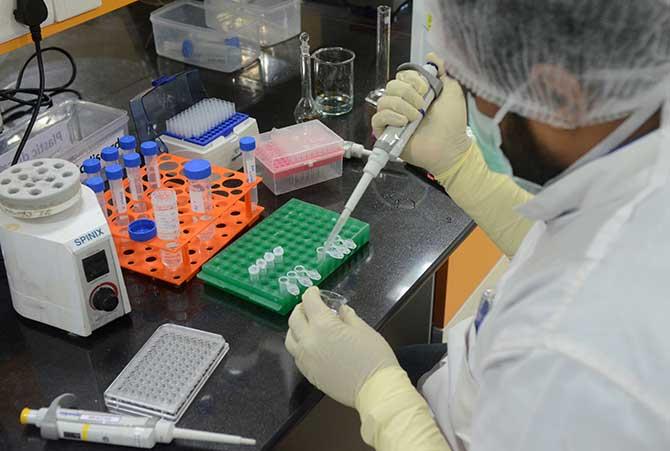
It will finally only be a vaccine that will defeat COVID-19. And put a halt to its victorious sweep through 2020 and liberate us.
Dr Shahid Jameel believes the vaccine will have to be manufactured in India.
Human viruses have been a lifelong study for Dr Jameel.
After earning degrees in chemistry from Aligarh Muslim University and IIT-Kanpur, he gravitated to the field of virology.
Dr Jameel completed his postdoctoral work in molecular virology at the University of Colorado Health Sciences Center, Denver, and returned to India to set up the virology group at the International Centre for Genetic Engineering and Biotechnology, New Delhi, in 1988. He headed this group for 25 years.
This virologist is presently the CEO of the India-based DBT/Wellcome Trust India Alliance; an appointment he has held since 2013.
It is a biomedical research charity. He works out of New Delhi and Hyderabad.
Although COVID-19, caused by SARS-CoV-2, is a new virus, Dr Jameel is an authority on the whole range of viruses that plague humans, right from the hepatitis viruses, HIV to SARS-CoV.
He states why India has the ability to develop the vaccine and explains to Vaihayasi Pande Daniel/Rediff.com what more is known about this virus.
The first of a two-part interview:

Why do you feel India has the capacity to develop a vaccine, given that the virus came to India a little later than other countries and we didn't have the inactivated specimen or a head-start?
India has invested well in life sciences and biotechnology research over the past three decades, since the establishment of the Department of Biotechnology within the Ministry of Science and Technology.
This has built both academic and translational ability and fostered public-private partnerships.
Future vaccine development will rely more on platform technologies than on de novo vaccine development for each new pathogen.
This is quite evident from the short time in which over 130 vaccine candidates against SARS-CoV-2 are in various stages of development, including 10 in human clinical trials.
India did start late, partly because we did not have platform technologies fully in place to exploit the genome sequence, when it became available in early January 2020.
The virus also showed up late in India and, being a Biosafety Level 3 pathogen (BSL-3 and indicates deadliness and risk level. BSL-4 is the highest and is for viruses like Ebola), it took time to set up containment facilities to grow it.
But we have not done badly.
The National Institute of Virology in Pune first isolated the virus and shared it with Bharat Biotech in Hyderabad (a biotechnology company that manufactures vaccines and bio-therapeutics) to develop an inactivated vaccine.
Further, about 30 different vaccine-related projects are being worked upon in the country.

And why India, before other countries? Why would it be easier to develop in India?
And which are the best outfits -- firms or institutes -- suited to do this?
It should not be seen as a race.
Also, it is not a matter of difficult or easy.
It is about capacity, systems and track record.
Indian companies like Bharat Biotech (Hyderabad), Serum Institute of India (Pune), Biological E (Hyderabad) and others produce many high-quality and affordable vaccines for the world.
These save lives.
I can say with confidence that any future SARS-CoV-2 vaccine, developed anywhere in the world, would have to be manufactured in India, if it is to be affordable and of high quality.
How long would it take approximately?
It would possibly take 12 to 18 months for an efficacious vaccine to be available widely for human use.
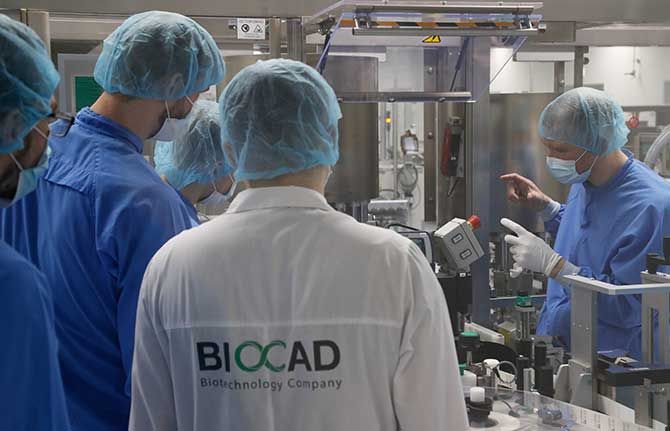
Is it possible to explain briefly why it takes so long for a vaccine to develop?
Vaccine development is a long process because we want to ensure the product is both efficacious and safe.
It has to go through multiple levels of testing, first in animal models and then in human volunteers.
Thereafter, it has to be manufactured to strict specifications and high purity.
Vaccines are the most cost-effective public health tools.
But often the people who most need vaccines against infectious diseases are also least able to afford them.
Therefore, for public distribution, especially in the developing world, cost is a key factor.
Having said that, the rapid development of SARS-CoV-2 vaccines and their movement into clinical trials, has been made possible due to new testing protocols and financial support from international funders.
These developments bode well for this and future vaccines. What would have otherwise taken a decade may now be available in a year or two.
As and when a vaccine comes, will the vaccine be capable of providing immunity against different strains of COVID-19?
And won't it take long for all of India to get vaccinated?
Firstly, there is so far only one strain of SARS-CoV-2.
There are multiple isolates from different parts of the world, which often cluster, based on geographic location, and show changes across clusters.
The second fact is that coronaviruses don't change as quickly as other RNA viruses, such as the influenza virus.
The changes seen so far are unlikely to impact the development of virus-neutralising antibodies.
Whether some of these changes will impact the quality and longevity of immunity remains to be seen.
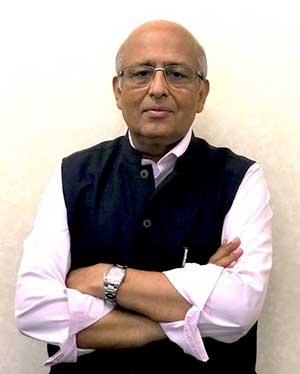 IMAGE: Dr Shahid Jameel
IMAGE: Dr Shahid JameelThere is a high likelihood that a vaccine developed anywhere would protect everywhere.
India is a big and complex country, and it would indeed take a long time to vaccinate everyone.
But that may not be needed.
Since the highest impact of the disease is:
1. In the elderly;
2. Those with underlying comorbidities;
3. Healthcare workers, they may be a priority.
Herd immunity is also likely to start protecting unvaccinated people once about 60 per cent of the population has immunity.
Production: Ashish Narsale/Rediff.com
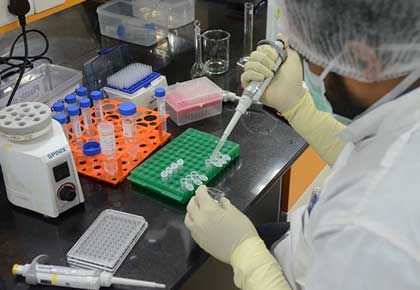


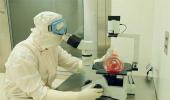
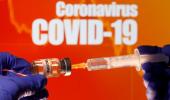







 © 2025
© 2025